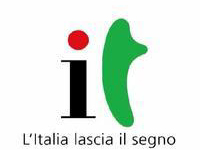The Italian government (just before it fell) launched with great fanfare italia.it, the country’s new tourism portal, along with a logo which:
- looks like the winner from an elementary school drawing competition
- is uncomfortably similar to the logo of Logitech
- in no way represents Italy
- includes a slogan ("Italy leaves a mark") which reminds me of the tourism campaign Spain has been running for years (that one with people sporting Dali’ mustaches) – didn’t it have exactly the same slogan?
As for the website… oh, dear god. They reportedly spent 45 MILLION euros for a site that lacks basic features (such as an RSS feed) that we have come to expect from a modern website. It has technical problems which anyone in Italy who knows anything about the web (and that’s a lot of us) is gleefully (and ruefully – our tax euros wasted!) tearing to bits.
Given my own skills and biases, what I first noticed was the English translation. Here’s a sample paragraph which I did not have to look hard to find:
For having more precise vision click on “+”: in this way it will be visualized an historical period in the detail.
For having, instead, one vision of entirety click on “-” and the period will be visualized a large historical period contain more events. The period comes shown in the Timeline to the right of the zoom: the blue bar will increase or decrease the dimension based on your choice.
This kind of laughably bad translation, like the manuals we so often see with Chinese electronics, gives the consumer no reassurance that there is anyone competent standing behind the product (the product, in this case, being Italy).
^ Someone else in need of a good translation service. The title on this clip in YouTube is "Rutelli inglese maccheronico" – Rutelli’s maccaronic English. Maccheronico (maccaroni-like) is the term Italians themselves use for heavily Italianized English (or other language).
Until a few weeks ago, I might have said that my Italian was good enough that I could translate an English text into decent Italian – not quickly, but I could do it, in fact had been asked to do it several times at the office (we have an office full of Italians, why ask me?).
Then we put this supposed skill of mine to the test. Ross is applying to attend Woodstock School next year. The application form includes recommendations to be done by various teachers and other people at her current school, none of whom (except the English teacher) reads or writes comfortably in English. So the form needed to be translated into Italian.
I took a first cut at it, and thought I had done a reasonably creditable job. Then Ross took it in hand, and came out with something completely different. I realized that my translation had been understandable, and grammatically fairly correct, but probably about as funny to a native Italian speaker as the text above is to a native English speaker.
Around the same time, Antonio, one of the delightful people I met at barCamp Roma, commented about me on his blog: Cavolo l’ho sentita zittire e mettere in riga decine di uomini con un italiano corretto, ma inglesissimo! – "Cavolo! I heard her shut up and straighten out dozens of men in very correct – but very English – Italian." Okay, I’m slightly embarassed about the shutting up and straightening out (not exactly my intention, but definitely my character). But the very correct and very English Italian… hmm.
I stand before you now, chastened and humbled: my Italian is good, but I sure as hell don’t speak or write like a native.
And this is a lesson that many Italians have yet to learn. Just because you can read and understand another language well, and maybe even translate well from that into your mother tongue, does not mean that you can translate in the other direction with comparable competence. If you need a text to sound professional and persuasive, leave it to an expert.
So… I’m looking for someone to translate my resumé into Italian…






